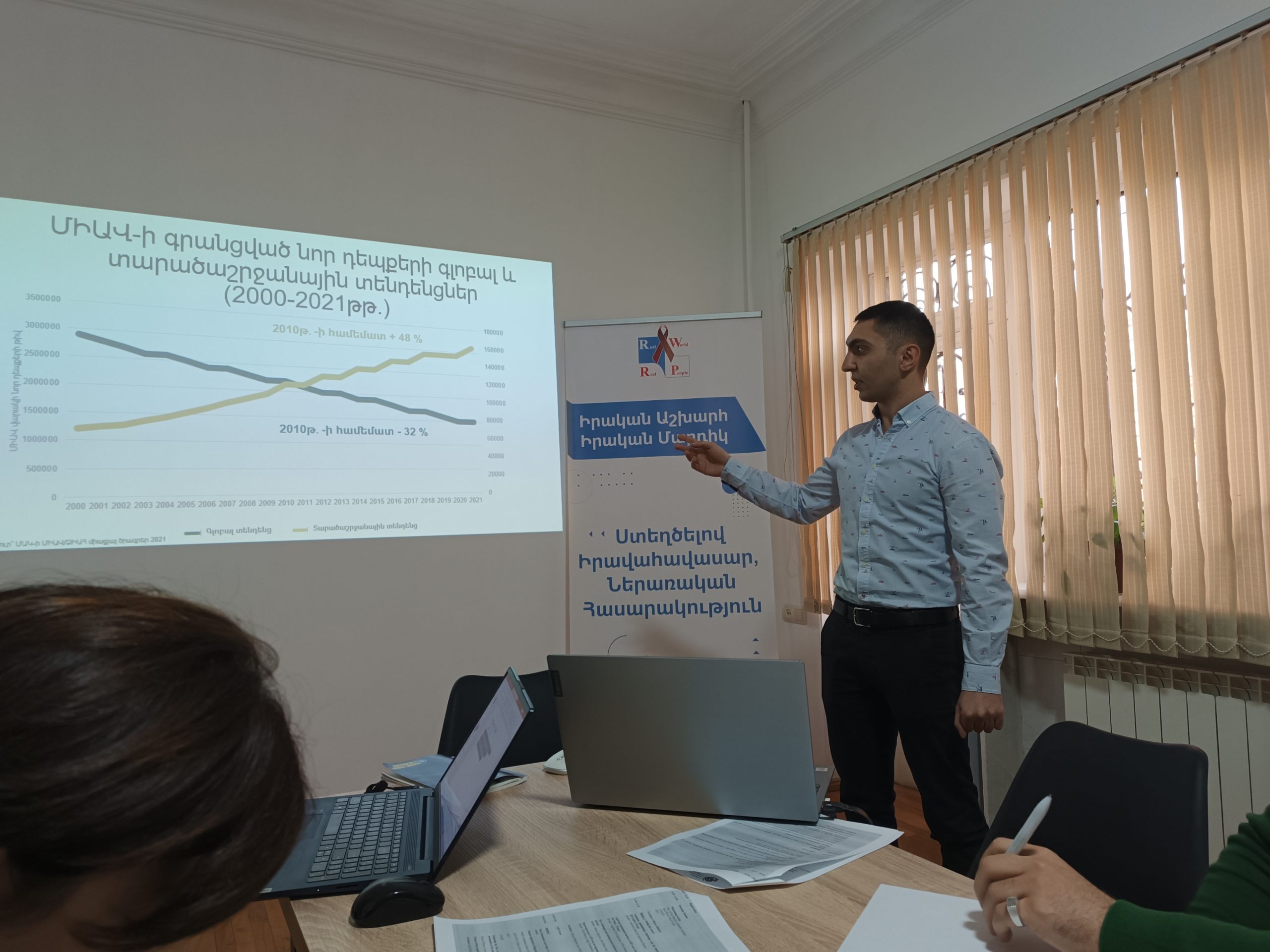On December 4, the Regional Expert Group on Migration and Health together with organization “Real World. Real People” held a Round Table in Yerevan, Armenia. The key focus of the meeting was the provision of HIV services for Armenian citizens living abroad. This meeting continues the series of similar national events in the EECA region.
The event brought together experts from the Armenian Ministry of Health, National Center for Infectious Diseases, Secretariat of Country Coordination Mechanism, UNAIDS, MSF, as well as NGOs “Real World. Real People”, “Pink” and “New Generation”.
During the meeting, Paruyr Mushegyan, monitoring specialist at the National Center for Infectious Diseases gave an overview of Armenian epidemiologic landscape and the response of national healthcare system to HIV/AIDS.
Roza Babayan, UNAIDS Country Director, Armenia, in her welcoming speech noted, that the UNHCR and IOM agendas pay attention to the topic of migrants’ health; there is a clear understanding that this issue is important and requires finding solutions. Ms. Roza Babayan also said that a working group has been created in Armenia to change legislation on HIV.
Zhenya Mayilyan, President of “Real World. Real People” summarized the main achievements of Armenia in developing healthcare for people living with HIV – an active work has been implementing to improve the situation in access to HIV care in the country. Changes have been made to the law on receiving social assistance, the method of submitting test results has been simplified – now doctors can accept them electronically, ART can now be legally sent by mail, which is fundamentally important for citizens receiving therapy outside the country. The procedure for obtaining treatment in Armenia for foreign citizens with HIV has also been simplified.
One of the issues still to be solved in Armenia – is provision of HIV treatment and hence saving lives of Armenian citizens who are in migration in the countries that are not provided ARV therapy to foreigners. The key aim of the following meeting was discussing opportunities and identify next steps to support migrants’ health in receiving countries, such as developing remote registration protocols that would allow providing remote treatment. This mechanism has already been adopted in several countries. Participants recognized the importance of this initiative and worked out further steps to begin providing treatment to citizens in migration.
